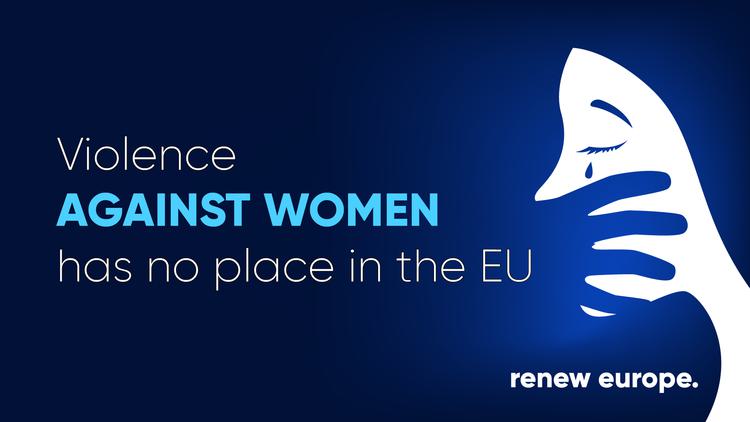
Today, the European Parliament endorsed the deal on the first-ever EU-wide directive to combat violence against women that was reached between the European Parliament and the Council, setting out common standards to criminalise different forms of gender-based violence and prevent, protect victims, and ensure access to justice, support, and prosecution equally across the Member States.
The historic deal reflects several victories for Renew Europe, such as the criminalisation of female genital mutilation, forced marriage, and - for the first time ever - cybercrimes, such as cyber flashing, cyber stalking and incitement to violence online. Furthermore, Member States will have to introduce national action plans to prevent and combat violence against women, as well as guarantee that victims of sexual violence have access to healthcare services, including SRHR services.
While Renew Europe welcomes this new directive that will play an essential role in protecting the lives of women in the EU, our political group deeply regrets the resistance of Member States to include the offence of rape based on lack of consent. For Renew Europe, it is clear that rape is one of the most severe forms of gender-based violence and this first European directive should include a common definition of the crime of rape based on lack of consent as established by the Istanbul Convention.
Despite not reaching all the way, Renew Europe is pleased to have managed to include legislation on the primary prevention of rape and the promotion of the central role of consent in sexual relationships. Member States will be obliged to introduce measures based on the idea that non-consensual sex is considered a criminal offence. These measures include awareness-raising campaigns and programmes, to promote changes in behavioural patterns in the context of sex and consent, with the ultimate aim of making all the countries implement consent-based laws.
Soraya Rodríguez Ramos (Ciudadanos, Spain), Renew Europe negotiator in the Committee on Women’s Rights and Gender Equality, said:
“Today the first directive on gender violence has been approved after a long wait. A directive that European women have been demanding for years. This directive opens a way to change many things, including improving the prevention and the protection of victims. Regarding sexual violence, it includes for the first time a common definition of the crime of rape: non-consensual sex is considered a crime.”
Lucia Ďuriš Nicholsonová (Slovakia), Renew Europe negotiator in the Committee on Civil Liberties, Justice and Home Affairs, emphasised:
“It is regrettable that a definition of the offence of rape based on the lack of consent is absent from the very first directive of this kind in the EU, but it nevertheless marks an important progress in combating violence against women, namely regarding the protection of victims, access to justice, victim support as well as prevention. All this will be a huge step forward for some Member States. For instance, enhanced training for law enforcement, prosecutors, and the judiciary introduced in the directive will undoubtedly benefit my country Slovakia. Lastly, we must remember that this directive is only a first step, a beginning, of a determined fight to ensure that all forms of violence are properly addressed. We owe it to all women across Europe.”